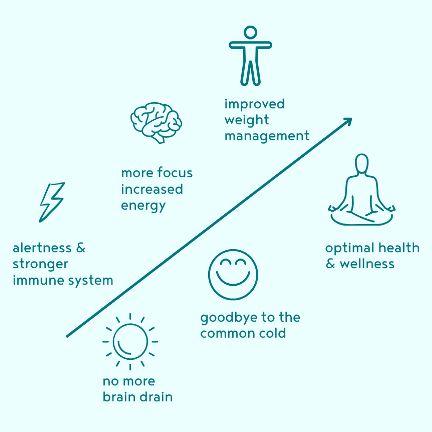Myth Busting: Are egg yolks actually bad for you?

When trying to eat healthy, it can be difficult to navigate what actually is good or bad for you. We’ve all heard that moderation is key, and that’s very true, but learning about basic nutrition in certain foods can really help you when braving the grocery store. There’s a lot of debate about one food at the moment in particular, so we’re here to figure out if egg yolks are actually bad for you or if it’s all just a myth.
When cracking an egg, you’ll notice that there are two different parts of the food. Egg yolks are the yellow circular middle of the egg, while the surrounding white area is called the egg whites. Over recent years, there’s been a huge emphasis on only utilizing the egg whites instead of the yolk while creating dishes since it typically contains less fat and calories. That being said, just because something is higher in calories doesn’t necessarily mean it’s bad for you or unhealthy.
In a 2019 review, researchers examined the pros and cons of consuming eggs and found that the yolk actually holds most of the essential vitamins and nutrients that can help your immune system. According to their findings, egg yolks hold compounds including phosvitin, peptides, and lutein which are extremely beneficial for your health. Basically, these compounds can help boost your immune system, lower your blood pressure, and also decrease your risk of developing gastrointestinal problems in the future (1). So, even though egg yolks may be labeled as “unnecessary fat,” it actually holds a lot of basic nutrients that can keep your body healthy and happy.
Of course, there are always cons to eating too much of any type of food. One of the biggest debates among nutritionists and health experts is whether egg yolks contain too much cholesterol. According to the United States Department of Agriculture (USDA), one large egg yolk contains 184 mg of cholesterol which is 61% of the recommended daily intake. This being the case, there’s been a lot of discussion as to whether eating eggs, particularly, egg yolks, is linked to eventual heart disease.
In a 2020 study published by the Journal of the American Heart Association, researchers examined whether there is a link between heart disease and mortality with daily egg consumption in the United States. While egg yolks do contain relatively high levels of cholesterol, their studies found that there is no direct link between solely consuming eggs and whether that increases your risk of heart disease mortality (2).
Taking these findings into account, the increased heart disease that’s been commonly associated with eggs could be attributed to the types of foods that often are served with eggs. This includes meat products like sausage and bacon, which can hold a significant more amount of cholesterol in a single serving (for reference: one link of sausage has 86 mg of cholesterol according to the USDA).
All in all, egg yolks may be high in cholesterol and have more calories than its egg white counterparts, but that doesn’t necessarily mean they are bad for you. The key, like any food, is to eat them in moderation and not too many at a time. Poach them, scramble them, or boil them: eggs are a universally beloved food that are easy to enjoy!








